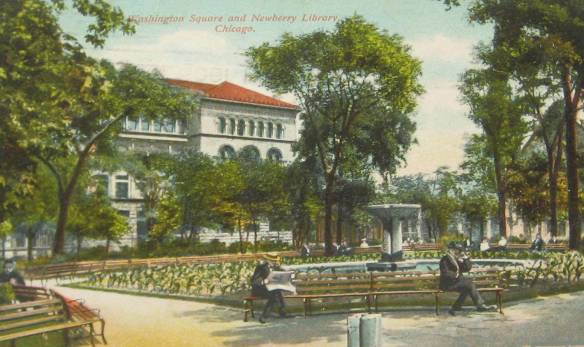I understand why people are more than upset that they feel their freedom of social media is being taken away. I’d be out of my mind. But I see what’s happening as a society doing (imperfectly and clumsily) what it needs to do to maintain minimum order required to operate. Doing what it needs to do, and what it has always done, since long before social media made absolutely everyone a widely influential opinion columnist. As I explain in the piece below, which I published in this space in mid-November. —DM
***
What differentiates a kook from a contrarian from a cultural critic?
Yesterday, I was following these Senate hearings where the social media moguls were being grilled about, among other things, whether they are suppressing the distribution of conservative posts. Good hearings to have, it seems to me. I’d like to know how the bloodless bastards who run these companies decide who sees what. Maybe we should have these hearings about once a week.
But on the very same morning, I was on a Zoom call with a self-admitted eccentric, who was complaining that he worries the social media platforms are censoring his admittedly out-of-the-mainstream views. His expressed views begin with alleged scientific evidence that undercuts the value of masks in suppressing the spread of COVID. His views escalate to: The larger problem here is that people are overly afraid of their own death—and we sentimentalize lots of the dear vulnerable old people who are actually mean assholes, truth be told.
He also told me he’s frustrated by others’ unwillingess to “punch back” at these views, when he expresses them in shops and on Zoom calls.
So I asked him why he felt it unjust that he not be able to easily find a wide and high platform to air his sanguine attitude toward herd immunization by accelerated mass global death.
I asked him to think of another time in history when the broad distribution of extremely unfashionable ideas was socially supported, or a nation where it was constitutionally guaranteed.
And I asked him to think about how he would try to express a contrary opinion 100 years ago.
Like, say, during Spanish Influenza, you thought that masks didn’t prevent spread and people who wore them were a bunch of sniveling cowards not manly enough to face down unblinkingly their likely random death.
And say you wanted to spread that opinion around. What were your options, 100 years ago? Well, you could print pamphlets and pass them around on street corners. You could start your own newsletter. You could write a little letter to the editor of one of the daily newspapers, like so many cranks so often did. Or you could stand on the street and shout your opinion into the wind.
If you lived in Chicago, on a warm night you could go to a place called “Bughouse Square,” which was the nickname, slang for a mental health facility, of Washington Square Park on the near north side. There, orators called “soapboxers” would hold forth on every subject under the moon, competing with poets, religionists, anarchists and Industrial Workers of the World (known as “Wobblies”).

Bughouse square became world-famous, actually—a tourist attraction.
“Many speakers became legendary,” according to the Encyclopedia of Chicago History, “including anarchist Lucy Parsons, ‘clap doctor’ Ben Reitman, labor-wars veteran John Loughman, socialist Frank Midney, feminist-Marxist Martha Biegler, Frederick Wilkesbarr (‘The Sirfessor’), Herbert Shaw (the ‘Cosmic Kid’), the Sheridan twins (Jack and Jimmy), and one-armed ‘Cholly’ Wendorf.”
Ever heard of one-armed “Cholly”? No, I didn’t think so.
Never heard of most of those folks, I bet. That’s because what they were saying wasn’t popular. And what’s not popular isn’t as well known as what is popular. Almost, you might say, by definition.
Now, I’m sure The Sirfessor was pretty bent out of shape that the Chicago Tribune or the Chicago Daily American wouldn’t give him a regular column to expound on his Nietzscean ideas about Egoism. I’m sure the Sirfessor didn’t see himself as a crank any more than you see yourself as a kook.
The Sirfessor would have been good on radio, too! Wikipedia tells us he once took part in “a non-stop talking contest in New York in 1928. Although he dropped out on the second day, he attracted attention by describing himself as the ‘coiner of more new words than any man in the world,’ and as ‘transcending the wit of Shakespeare.’”
But did the Sirfessor have a legitimate claim that the newspapers and radio stations were criminally and fascistically preventing him from carrying his message to the masses, in all the great capitals of the world?
No, newspapers and radio stations weren’t about to do that, because they wanted to maintain economic viability by maintaining public credibility, and the way you do that is to keep within shimmering sight of the solid land that is mainstream public opinion.
You’d have to be ignorant or purposely obtuse (as many of us are these days) to believe that such a fundamental fact of capitalist society has changed. Twitter and Facebook aren’t against conservatism. They’re against social instability. And they’re against the widespread perception that they are endangering the society in which they do business by enabling the spread of social madness.
I am not saying it’s madness to believe that there’s a chance masks don’t work as well as we think they do, though I think focusing on that possibility seems misplaced. And over a bottle or two, I would love to discuss people’s evolving attitudes about death, and how they might play into public policy regarding a pandemic; I actually have a few things to say on that subject myself.
Much more absurd than those conversations is the one that says, “I deserve to have my ideas heard by the masses, no matter how grating or odd they may sound to the mainstream ear. And anything that keeps me from doing that is a sign of creeping totalitarianism.” That really is a kooky thing to say.
If you want to get truly disagreeable or disruptive ideas heard, you either need to make them seem more mainstream—or you need to organize, and make enough noise and collect enough signatures that even the Power Guys have to listen. Because the numbers you gather begin to make your ideas socially legitimate—again, by definition. But that takes a hell of a lot of work and a lot more than inventing new words and saying them with power and wit.
Everyone knows that—except some people I know. Maybe some people who aren’t used to having their views marginalized.
But as I told my aggrieved friend, the good news is that Bughouse Square is still there, and it still looks very much like it always did, and every summer they hold the Bughouse Square Debates, where you can still say whatever words you want, and if you’re up to it, you can talk for two days straight.

There’s also the newly popular social media platform Parler, which bills itself as “The World’s Town Square,” and promises its users a place to “speak freely and express yourself openly, without fear of being ‘deplatformed’ for your views.”
That seemed to interest my friend even more.
***
Postscript, 1/12: To bring this up to Parler’s blackout this week: It’s historically remarkable that people hostile to “lamestream” views had the means to do mass communication for a couple of decades. It’s historically predictable that when that experiment started scaring the bejeepers out of the corporate power structure that enabled it, the companies shut it down. If this is an issue, it’s an oligarchy issue rather than a censorship issue. But I think any society that has something left to lose will have an Establishment that finds a way to marginalize, ignore or mute views they see as insane, untrue, destabilizing and dangerous. It will always be on the dissenters to find a way to be heard, and they should not expect anyone to roll out a red carpet, no matter how righteous they think their cause. If the Civil Rights marchers could have published op-eds in the Selma Times-Journal, they wouldn’t have been called “marchers” in the first place. And the John Birch Society had its own massive publishing arm, of course. And so, my more radical conservative friends: Don’t think of what’s happened to Parler as an unprecedented injustice. Think of it a healthy test of your commitment, and its coherence. —DM
Thought provoking perspective from 20,000 ft. by someone whos ox is not being gored